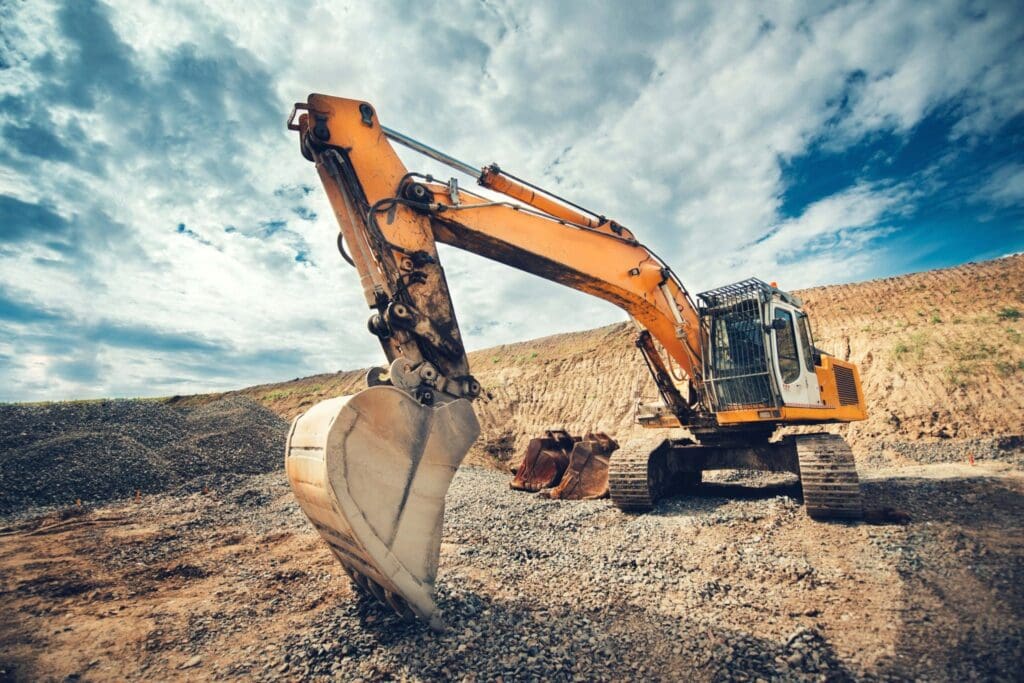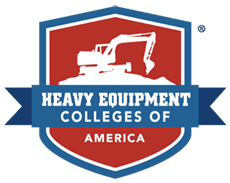Table of Contents
Excavators are an essential piece to practically any construction project. These machines are quite versatile, capable of digging, flattening, or moving large objects. As an operator, you’d find yourself doing a variety of jobs, making this career path full of opportunities. But before you can become an excavator operator, it’s important to learn proper usage. Failure to do so can result in injury to yourself and those around you, not to mention damage to the machine and surroundings.
No matter your level or training, the best place to start learning the proper operation procedures is here. Begin by learning what an excavator is and how to operate it safely. You’ll also learn how to get started with training and certification.
What Is an Excavator?
If you’ve ever been on or around a construction site, then you’ve likely seen an excavator. An executor is a machine that operators use to create holes and trenches in the ground. Typically, you’ll see an excavator use a bucket to dig a hole and remove dirt, but other attachments can be used to accomplish additional tasks. For example, you could exchange the bucket for an auger to drill into the ground.
Today’s excavators are powered by hydraulics and most come with tracks while others have wheels. There are two main sections to hydraulic excavators, the undercarriage and the house. The house is where you’ll find the cab, the engine, the boom, digging arm, and counterweight.
Things To Check Before Operating an Excavator
Prior to operating your excavator, there are several things you should consider. First, you’ll want to plan your whole operation. It’s a good idea to inform others on the construction site of your plan to keep them out of danger. You should also check the attachment you are using on the excavator to ensure maximum performance. Next, you should test the balance of your machine by running it on an even surface. Other things to check include any signs of damage, leaks, and that there are sufficient coolant and lubrication levels. Lastly, to prevent boxing yourself in, deciding where you’ll put your spoil pile prior to excavating.
How to Operate Excavator?
Your first step in operating an excavator is to ensure you safely climb aboard. You may think this is obvious, yet the number one cause of construction-related accidents is due to falling. Once you are safely inside the cab, put on your seatbelt and turn the machine on. If none of the safety or hazard lights come on and fuel levels are fine you are clear to take off the safety lock.
To lower the boom or move it up, use the joysticks located to your right. Using the same joystick, you can open and close the bucket. To move the excavator stick out, push the joystick to your left forward. To move the stick back, you’ll need to pull the joystick to your left backward.
If you need to swing the cab you can use the left joystick. When it’s time to drive the excavator, be sure that the dozer blade is up first. Then you can use the pedals to accelerate forward until you’ve reached the desired destination. To restabilize the machine after moving positions, lower the blade.

Operation Safety Tip
While excavators are useful, they are also extremely dangerous. Promote a safe working environment by following these safety tips.
- Plan before acting – Fully develop your plan from spoil pile to which attachment you plan to use.
- Check machine – Are there any signs of damage, leaks, or other signs that indicate the machine may fail.
Balance check – Before digging, run your excavator over an even surface to ensure it’s properly balanced. - Avoid contact with wheels/tracks – As you move the bucket or attachment, avoid hitting the wheels or tracks.
- Ground stability – Wheels/tracks not fully touching the ground or the ground being unstable can lead to a tip-over.
- Stay vigilant – Before and during your use of the excavator, be aware of your surroundings. Look above you for overhead obstructions and use mirrors and cameras to avoid obstacles around you.
Following these tips doesn’t guarantee you’ll never make a mistake, but it will lower your chances of causing an accident.
How To Become an Excavator Operator?
Interested in becoming an excavator operator? As long as you are 18 years or older, possess a driver’s license or CDL (commercial driver’s license) you can lawfully operate an excavator. However, if you are looking to make a career out of it, you’ll want to enroll in a training course first. Employers value skilled workers, so getting the proper training and certification will give you an edge.
Find Heavy Equipment Schools Near You
Whether you plan on becoming an excavator operator or want to learn how to operate other pieces of heavy machinery, HEC is the place to start. We’ve helped people start new careers in construction, the transition from the military to civilian life, or advance their current skill set. The benefits of attending a program at HEC include: the course can be completed in as little as three weeks, you’ll have access to career resources after completing your program, and so much more. Wondering where you can find us? We have campuses across the county—find one near you.
